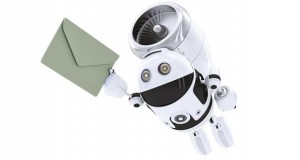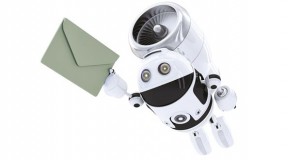Rise of the machines?
There are frequent reports in the media about machines taking jobs from humans. In this feature FMJ looks to see which jobs in the facilities industry could become entirely automated, and counter to this, those jobs where humans will always be needed
FMJ likes to brighten people’s day, add a bit of humour, throw some amusing facts into the mix, hopefully you know what we mean. We’re not here to scare people, or play the doomsayer. At least, not very often.
Everyone who doesn’t live under a rock will have noticed that Hollywood and a hell of a lot of authors are obsessed with artificial intelligence, robots and androids and the upcoming struggle they will have with humans. It has been mentioned so often that it is almost taken as a given. The Matrix, Ex Machina, Channel Four’s latest drama Humans are all built around this concept.
But when you step away from the Reductio ad absurdum authors employ there is a very real trend toward machines taking over jobs from humans. Has anyone not seen the person in the supermarket refusing to use the self service tills because they are putting people out of jobs? Maybe they mean it, maybe it’s just an excuse to avoid using the technology…
GOING TO GO For example a study by Oxford University found that 47 per cent of all extant jobs will disappear by 2033, made obsolete by machines. The ten most at risk will surprise no-one:
For example a study by Oxford University found that 47 per cent of all extant jobs will disappear by 2033, made obsolete by machines. The ten most at risk will surprise no-one:
- Bank Cashier
- Shop Cashier
- Receptionist
- Telephone marketer
- Postman
- Travel agent
- Typist
- Journalist
- Data entry associate
- Telemarketer
Apart from receptionists, none of these are particularly relevant to facilities management, (though number eight does bring me out in a cold sweat…). Of course FM will feel the domino effect as millions of people affected by the disappearance of these jobs suffer.
But if the people working behind tills or delivering your mail can be replaced, why not cleaners, why not security guards, why not caterers, why not managers?
Alan Tovey, industry editor at the Telegraph reported in November 2014 that 35 per cent of all jobs would disappear in the next two decades. That is 11,000,000, jobs (31,000,000 people in the UK were employed at that time). Most of those roles would belong to people earning under £30,000 per year.
Presumably this would therefore have a massive impact on the gap between the haves’ and the have not’s.
Tovey’s article claimed that between 2001 and 2014 over 30,000 secretaries were replaced by machines, along with 15,000 clerks and several thousand people involved in archiving.
Delivery drivers could (should?) be worried about automated cars, pilots by similar systems on board planes. After all drones already fly themselves.
There are already robots that churn vast amounts of data for journalists, bankers, statisticians and others. Mechanical surgeons inch closer to reality every year, some quotes suggest humans are required in some operations, simply because humans should be required.
A company called momentum machines has even developed an automated burger flipper which can cook 360 perfect burgers in one hour. Effectively humans won’t even be able to fall back on cooking fast food.
Erik Brynjolfsson is a professor at the MIT Sloan School of Management and he believes that the recent economic growth is set to continue, but that it will not be matched by growth in jobs creation and employment rates.
The post Rise of the machines? appeared first on FMJ.
Source: FMJ


